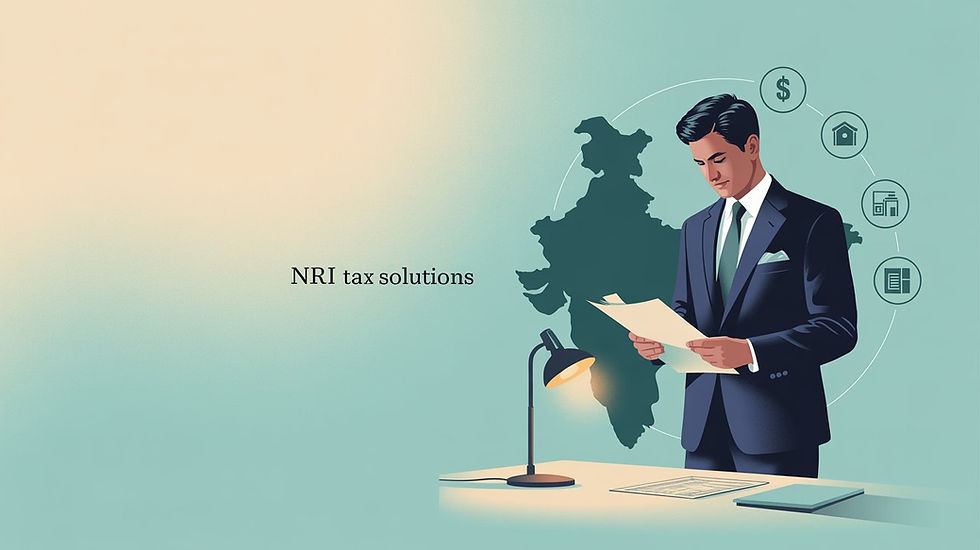The Art of Credit Management: Integrating Credit Cards into Financial Planning in India
- Content Turtle
- Nov 13, 2023
- 3 min read
Credit cards have become a pivotal element of financial planning. They are no longer just a means of borrowing but a financial tool that, when used wisely, can enhance one’s financial health. Effective credit management is an art that balances spending, rewards, and credit scores, all under the umbrella of comprehensive financial planning.
The Role of Credit Cards in Financial Planning
Credit cards, when used responsibly, can be a powerful component of financial planning. They can help you:
1. Track Spending: Credit cards can simplify budgeting by providing a clear record of your expenses.
2. Earn Rewards and Benefits: Many cards offer rewards points, cashback, discounts, or travel benefits that can add value to your spending.
3. Build Credit History: Timely payment of credit card bills helps build a good credit score, which is crucial for obtaining loans at favorable interest rates.
4. Manage Cash Flow: Credit cards can provide a short-term credit facility that helps manage cash flow, especially in case of emergencies or unplanned expenses.
5. Enhance Security: Credit cards offer better protection against fraud compared to debit cards and can be easily blocked in case of loss or theft.
Understanding Credit Card Usage in India
Credit card usage in India is characterized by a growing middle class and increasing digitalization. With a burgeoning number of card issuers offering a variety of benefits, Indian consumers have a wealth of options to choose from. However, the key to integrating credit cards into financial planning is understanding their features, benefits, and the terms and conditions attached to them.
Strategic Spending with Credit Cards
Financial planning with credit cards involves strategic spending. This means:
1. Budget Alignment: Use credit cards as a budgeting tool to track and categorize expenses.
2. Reward Optimization: Choose credit cards that offer rewards that align with your spending habits and lifestyle.
3. Interest Rate Consideration: Be aware of the interest rates and avoid carrying a balance that accrues high interest.
4. Utilization Ratio: Maintain a low credit utilization ratio to positively impact your credit score.
The Risks of Mismanaging Credit Cards
The convenience of credit cards comes with risks. Overspending can lead to a debt trap, and failure to pay bills on time can result in hefty penalties and damage to your credit score. Financial planning helps mitigate these risks by incorporating credit card use into a disciplined financial strategy.
Credit Cards and the Indian Market
In India, the Reserve Bank of India (RBI) regulates credit card companies, and understanding these regulations can help consumers make informed decisions. Additionally, with initiatives like UPI (Unified Payments Interface) and Rupay cards, the Indian market is uniquely positioned in the digital payments space.
Building a Good Credit Score in India
A good credit score is a vital aspect of financial planning in India. It can affect loan eligibility, interest rates, and even job prospects. Responsible use of credit cards is one of the most effective ways to build and maintain a good credit score.
Managing Debt and Credit Cards
Debt management is a critical component of financial planning. It involves:
1. Paying on Time: Always pay credit card bills on time to avoid interest and penalties.
2. Paying More Than the Minimum: Whenever possible, pay more than the minimum due to reduce the principal faster.
3. Debt Consolidation: If you have balances on multiple cards, consider debt consolidation options to manage payments better.
4. Avoiding Unnecessary Borrowing: Use credit cards judiciously to avoid unnecessary debt.
Financial Planning with Credit Cards: A Step-by-Step Guide
1. Assessment: Review your financial situation, including income, expenses, assets, and liabilities.
2. Goal Setting: Determine your financial goals and how credit cards can help achieve them.
3. Card Selection: Choose credit cards that match your financial needs and spending patterns.
4. Spending Plan: Create a spending plan that includes credit card purchases and ensures that you can pay off the balance in full each month.
5. Monitoring: Regularly monitor your credit card statements and your credit score.
6. Review and Adjust: Periodically review your credit card usage as part of your overall financial plan and make adjustments as needed.
Conclusion
In the context of India’s dynamic financial environment, integrating credit cards into financial planning is not just about spending; it’s about managing your overall financial health. By using credit cards strategically, you can reap benefits while maintaining financial discipline. As part of a holistic financial planning approach, credit cards can be a gateway to not just a robust credit history but also a means to achieving broader financial objectives.
Mastering the art of credit management requires education, discipline, and a strategic approach to financial planning. With these in place, credit cards can be a valuable tool in the financial toolkit of any individual looking to optimize their financial well-being.
Managing money can be overwhelming! Whether you're tackling financial challenges or striving to achieve life goals, consulting a reliable financial advisor is a wise move. For expert guidance and effective personal finance management, talk to Turtle today -
1. Just head to our website — Link here
2. Click on “Book a free call”
3. Choose the date & time as per your convenience and RELAX!
Turtle Advisors will take it from there!


